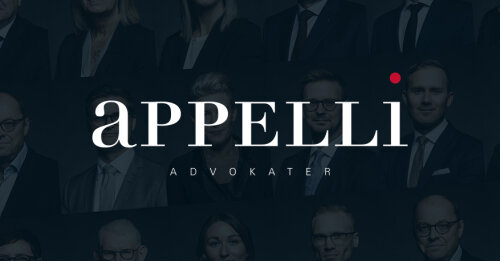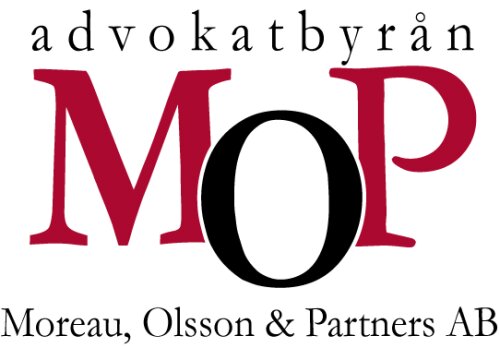Best Creditor Lawyers in Sweden
Share your needs with us, get contacted by law firms.
Free. Takes 2 min.
Or refine your search by selecting a city:
List of the best lawyers in Sweden
About Creditor Law in Sweden
Creditor law in Sweden is a vital aspect of the country's legal system, governing the relationships between creditors and debtors. It encompasses the rules and regulations allowing creditors to collect payments owed by debtors, ensuring that debts are duly paid and financial agreements are respected. Swedish creditor laws are influenced by both national legislation and European Union directives. They provide a framework for debt collection, insolvency proceedings, enforcement, and dispute resolution, while also protecting debtor rights to prevent abusive practices. Understanding these laws is essential for both creditors and debtors to navigate financial obligations effectively.
Why You May Need a Lawyer
There are several situations where seeking legal advice from a lawyer experienced in creditor law in Sweden can be beneficial:
- Debt Recovery: If you are a creditor seeking to recover unpaid debts, a lawyer can assist in navigating the collection process legally and effectively.
- Dispute Resolution: Legal disputes with debtors regarding the validity or amount of a debt can require professional legal advice to resolve.
- Insolvency Proceedings: Understanding your rights and options in cases involving bankruptcy or restructuring of a debtor's assets is crucial.
- Legal Compliance: Ensuring that your debt collection practices comply with Swedish regulations to avoid legal repercussions.
- Contract Review: Lawyers can help in drafting or reviewing credit agreements to ensure they are clear, enforceable, and in compliance with the law.
Local Laws Overview
Key aspects of local laws related to creditor matters in Sweden include:
- The Enforcement Code: This governs the procedure for enforcing claims, such as garnishment of wages or seizure of assets, in Sweden.
- The Debt Collection Act: This legislation prevents harsh collection practices, ensuring fair treatment of debtors while enabling collection of legitimate debts.
- The Insolvency Law: In bankruptcy or insolvency situations, the Act facilitates orderly asset distribution among creditors while prioritizing certain claims.
- Contract Law: The formation and enforcement of credit agreements are pivotal in creditor-debtor relationships, governed by Swedish contract law.
- Consumer Credit Act: This act provides additional protections in consumer credit situations, such as transparent information and fair treatment.
Frequently Asked Questions
What is the first step in recovering a debt in Sweden?
The first step is usually sending a formal demand for payment to the debtor. If this fails, the creditor may proceed to legal enforcement measures.
Can creditors charge interest on debts in Sweden?
Yes, creditors can charge interest on debt, but the rate and conditions must comply with Swedish law and be outlined in the credit agreement.
What options do creditors have if a debtor is insolvent?
Creditors may initiate insolvency proceedings or participate in a debtor's bankruptcy case to seek repayment from the debtor's assets.
Are there any protections for debtors against creditors in Sweden?
Yes, the Debt Collection Act ensures debt collection practices are fair and respectful of debtor rights, preventing abuses.
How long does a creditor have to claim a debt?
Typically, the limitation period for claiming a debt in Sweden is three years unless otherwise specified by an agreement.
Can a creditor seize a debtor's personal property?
Under certain conditions and following legal proceedings, creditors can seize a debtor's property, but specific exemptions apply, such as essential personal belongings.
What happens if a creditor and debtor reach a settlement agreement?
If a settlement is reached, it should be documented thoroughly. It can alter the original terms of payment and eliminate further legal proceedings.
How can a creditor verify if a debtor has filed for bankruptcy?
Creditor notifications are typically made regarding bankruptcy filings, and information can be confirmed through the Swedish Companies Registration Office.
Are there laws associated with cross-border debt collection?
Yes, Sweden adheres to EU regulations and treaties which affect how cross-border debts are collected amongst member states.
What is wage garnishment and how is it applied?
Wage garnishment is a legal process where a portion of the debtor's salary is directly deducted to repay debts. This must be ordered by a court.
Additional Resources
For those seeking further information or assistance regarding creditor law in Sweden, consider the following resources:
- The Swedish Enforcement Authority (Kronofogden): Responsible for the enforcement of financial claims.
- The Swedish Consumer Agency: Provides guidance on consumer rights and responsibilities.
- The Swedish Companies Registration Office (Bolagsverket): Offers information on insolvency and corporate issues.
- Legal Aid Offices: Provide support and legal advice services to those in need at subsidized rates.
Next Steps
If you require legal assistance in creditor matters, it is advisable to consult with a lawyer specializing in creditor law. Begin by:
- Research: Identify legal professionals or firms with expertise in creditor law.
- Consultation: Arrange an initial consultation to discuss your situation and seek advice.
- Documentation: Prepare all relevant documents and information about your case for the consultation.
- Action Plan: Follow the legal advice provided and formulate a strategy for debt recovery or dispute resolution.
Lawzana helps you find the best lawyers and law firms in Sweden through a curated and pre-screened list of qualified legal professionals. Our platform offers rankings and detailed profiles of attorneys and law firms, allowing you to compare based on practice areas, including Creditor, experience, and client feedback.
Each profile includes a description of the firm's areas of practice, client reviews, team members and partners, year of establishment, spoken languages, office locations, contact information, social media presence, and any published articles or resources. Most firms on our platform speak English and are experienced in both local and international legal matters.
Get a quote from top-rated law firms in Sweden — quickly, securely, and without unnecessary hassle.
Disclaimer:
The information provided on this page is for general informational purposes only and does not constitute legal advice. While we strive to ensure the accuracy and relevance of the content, legal information may change over time, and interpretations of the law can vary. You should always consult with a qualified legal professional for advice specific to your situation.
We disclaim all liability for actions taken or not taken based on the content of this page. If you believe any information is incorrect or outdated, please contact us, and we will review and update it where appropriate.
Browse creditor law firms by city in Sweden
Refine your search by selecting a city.

















